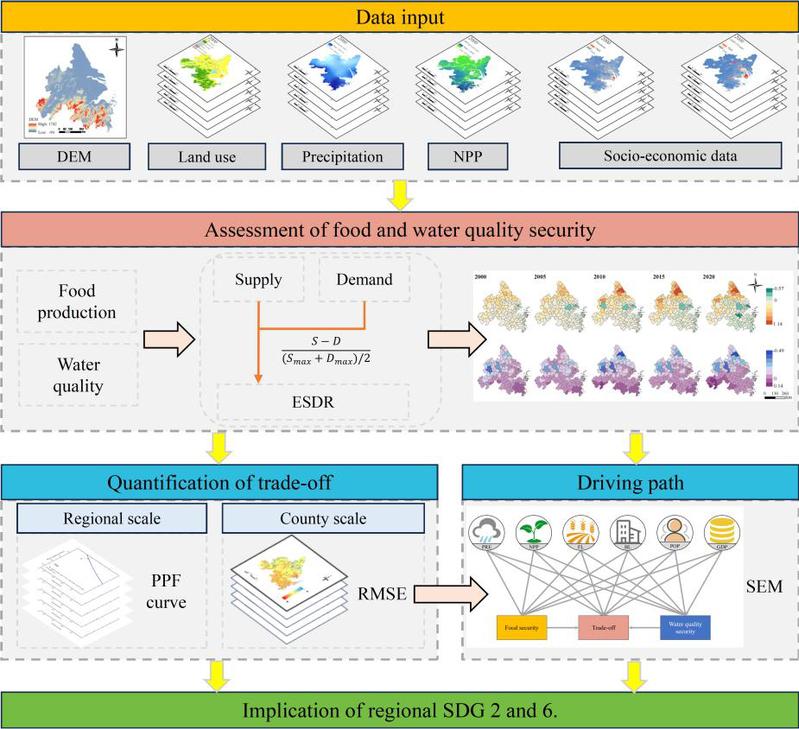On June 30th, a research paper titled Urbanization Intensified the Trade-off Between Food Security and Water Quality Security in the Yangtze River Delta by Associate Professor Hu Yina and her team from the School of Environmental and Geographic Sciences was published in the top-tier Earth science journal Earth's Future (Impact Factor = 8.2). The study focuses on the challenges of coordinated management between food security and water quality security in the Yangtze River Delta under rapid urbanization, providing critical scientific support for regional sustainable management.
This study focuses on the Yangtze River Delta region, quantifying the spatiotemporal dynamics of food security and water quality security based on the supply-demand ratio of ecosystem services. Using structural equation modeling, it reveals the driving pathways of socio-ecological factors on food security, water quality security, and their trade-offs. Finally, a conceptual framework is proposed to understand the impacts of urbanization at different stages on food security, water quality security, and their trade-offs. The expansion of cultivated land and built-up areas has a significant negative effect on the trade-offs between food security and water quality security, while population growth exerts a significant positive effect. Additionally, precipitation, population, cultivated land area, construction land, and GDP have opposing effects on food security and water quality security, indirectly exacerbating the trade-offs. Moreover, although mitigating the trade-offs between food security and water quality security is highly challenging, the study identifies win-win combinations that can achieve simultaneous improvement in both. Finally, the research proposes a conceptual framework to understand the impacts of urbanization at different stages on food security, water quality security, and their trade-offs, providing theoretical guidance for comprehending and managing this dynamic process.
This research was supported by the National Natural Science Foundation of China (Grant No. 42201102). The first author of the paper is Xue Fei, a master's student in the Resource and Environment major at the School of Environment and Geographic Sciences, Shanghai Normal University (Class of 2023), and the corresponding author is Associate Professor Hu Yinna from the same school.
The paper can be reached by clicking https://www.scirp.org/reference/referencespapers?referenceid=1715655 .




